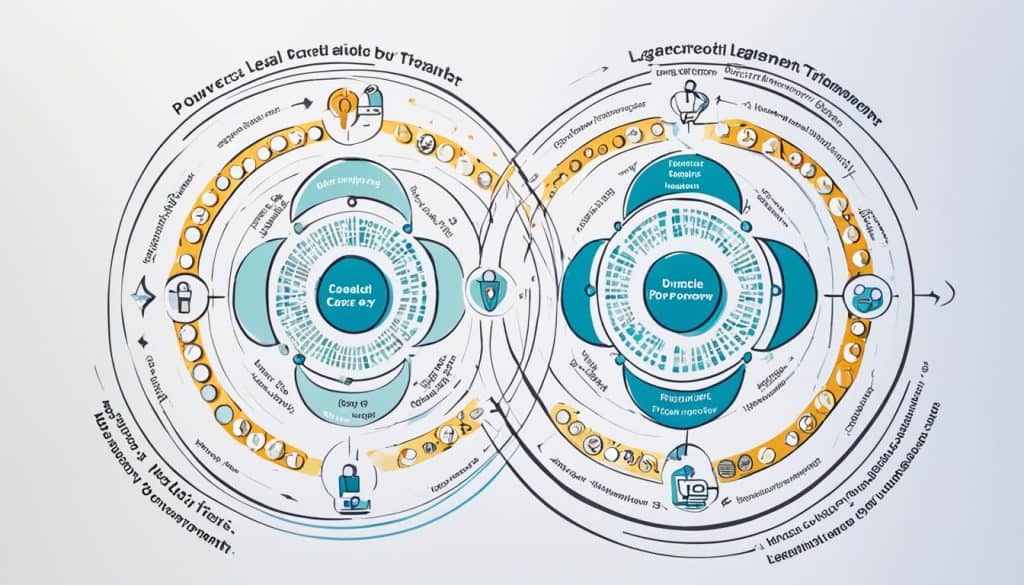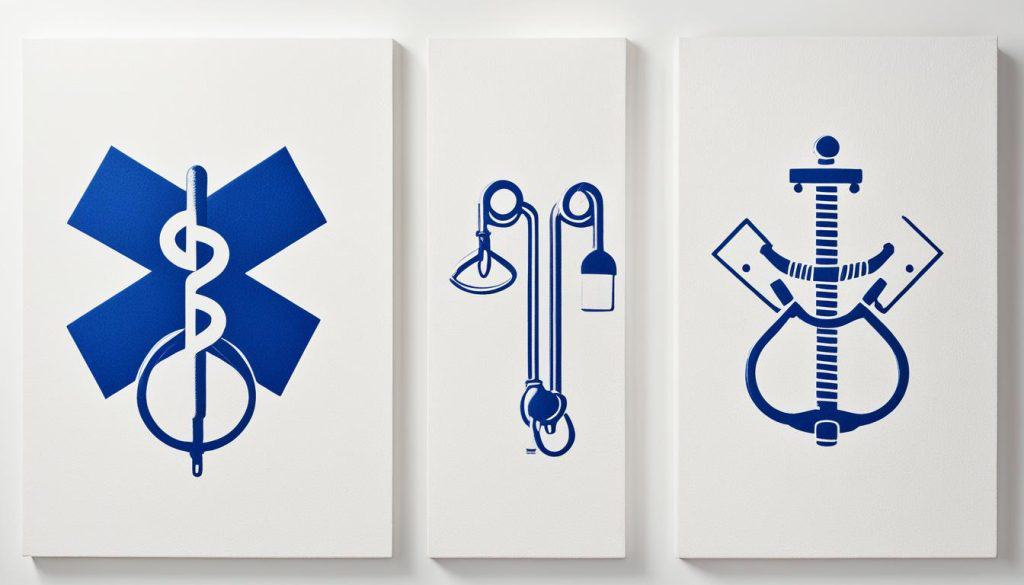The critical differences between health care power of attorney and durable power of attorney delineate who will be making decisions on your behalf during incapacitating circumstances. A health care power of attorney is specifically designed to handle your medical decisions, while a durable power of attorney is imbued with the authority to oversee your financial affairs. Understanding the distinction between these legal instruments is an essential component of comprehensive estate planning, ensuring your wishes are respected and your interests protected in times when you are unable to advocate for yourself.
Key Takeaways
- Recognize the unique roles of health care power of attorney and durable power of attorney in safeguarding your future.
- Understanding the distinction between these powers is a cornerstone in creating an effective estate plan.
- A health care power of attorney focuses on medical decisions, whereas a durable power of attorney addresses financial and legal matters.
- Both documents are pivotal in maintaining control over your personal affairs in the event of incapacity.
- Consideration of each option’s effectiveness is vital in ensuring comprehensive protection.
Differences Between Health Care and Durable Power of Attorney
In understanding how to prepare for unforeseen circumstances, it’s fundamental to differentiate between a health care power of attorney and a durable power of attorney. These legal instruments serve to delegate decision-making authority in distinct domains of one’s life, ensuring that individual preferences are upheld even when they cannot personally oversee them.
Defining Health Care Power of Attorney
The health care power of attorney allows an individual to appoint a trusted agent to make medical decisions on their behalf. This type of power of attorney comes into play when a person becomes incapacitated and is unable to make informed health care decisions for themselves. The purpose of this document is to ensure that a patient’s medical treatment preferences are respected, particularly concerning end-of-life care and other essential health matters.
Understanding Durable Power of Attorney
In contrast, a durable power of attorney has a broader significance and is employed to manage a person’s financial and legal affairs. It remains in effect after the individual becomes incapacitated, hence the term ‘durable.’ This legal tool covers decisions pertaining to property, financial accounts, and personal business, ensuring that an individual’s financial well-being is maintained according to their instructions.
When Each Type Becomes Effective
Assessing the effectiveness of each type of power of attorney is crucial. A health care power of attorney becomes effective immediately upon the principal’s incapacitation as determined by medical professionals. Meanwhile, the durable power of attorney may become effective as soon as the document is signed or at a specified date, and it remains valid through incapacitation, a feature that underscores its durability and enduring nature.
Appointing Different Agents for Each Power of Attorney
An often discussed aspect of these powers of attorney involves appointing separate agents for each role. By naming distinctive agents, an individual can leverage specialized expertise and ensure that their medical and financial interests are independently managed. Such separation often optimizes decision-making effectiveness, as it allows each agent to focus on the specific realm of responsibility without a conflict of interest.
Scope and Limitations of Health Care vs Durable Power of Attorney
Understanding the scope and limitations of health care power of attorney and scope and limitations of durable power of attorney is crucial for individuals preparing for potential incapacity. These legal documents outline the decision-making authority designated to appointed agents, as well as the boundaries within which they can operate. Below is a comparison highlighting the distinct scope and limitations that come with each power of attorney type.
| Power of Attorney Type | Scope of Authority | Limitations | Decision-Making Boundary Conditions |
|---|---|---|---|
| Health Care Power of Attorney | Medical care decisions on behalf of the principal. | Certain end-of-life decisions may require explicit consent. | Applies when the principal is unable to communicate health care preferences. |
| Durable Power of Attorney | Financial and legal decisions, including property and business management. | Limited by state law and specific exclusions made by the principal. | Continues to be effective after the principal’s incapacitation. |

The boundaries of both types are typically defined by state laws and can also be adjusted based on the principal’s preference. While a health care power of attorney is primarily concerned with medical decisions, the durable power of attorney carries a broader decision-making authority that may encompass various aspects from selling real estate to handling business transactions.
- Health care power of attorney agents are restricted by medical ethics and specific healthcare statutes.
- Durable power of attorney agents must act within the confines of fiduciary duty, ensuring they make decisions in the best interest of the principal.
By properly delineating these roles, individuals can ensure that their affairs are managed according to their wishes while protecting both themselves and their agents from legal overreach or unintended consequences.
Choosing the Right Power of Attorney for Your Needs
When preparing for the future, choosing the appropriate power of attorney is a critical decision that can greatly influence your peace of mind and financial security. The process may seem complex, but by taking into account several essential factors, you can ensure that your wishes are respected and that your affairs are in competent hands. It’s imperative to scrutinize your personal circumstances, such as family dynamics, the complexity of your financial situation, and your healthcare preferences, to determine which type of power of attorney aligns with your specific needs.
One of the pivotal factors to consider is whom you trust to manage your affairs if you can no longer do so. This person should not only have an understanding of your wishes but also the capability to act on your behalf with integrity and in your best interest. Additionally, you should reflect on the potential for changes in your health and financial status, opting for a power of attorney that offers the flexibility to adapt to varying situations without compromising the protection of your assets and health decisions.
Given the weight of this decision, seeking legal advice from a qualified estate planning attorney is recommended for anyone looking to establish a power of attorney. An experienced attorney can offer invaluable insight into the legal implications of each type and assist in drafting documents that precisely reflect your intentions. They can also help you navigate any state-specific legislation that may affect your power of attorney, ensuring that your directives are both effective and enforceable. Through professional guidance, you can make a well-informed decision that secures both your agency and your legacy.
FAQ
What is the difference between health care power of attorney and durable power of attorney?
What is the purpose of a health care power of attorney?
What is a durable power of attorney?
When does each type of power of attorney become effective?
Why is it important to appoint different agents for each power of attorney?
What are the scope and limitations of health care power of attorney and durable power of attorney?
How do I choose the right power of attorney for my needs?
Source Links
- https://learn.eforms.com/estate-planning/durable-vs-medical-power-of-attorney-and-why-you-need-both/
- https://applepaynelaw.com/blog/difference-between-a-health-care-and-durable-power-of-attorney/
- https://www.gmcculloughlaw.com/blog/2017/11/the-difference-between-a-durable-and-medical-power-of-attorney/

